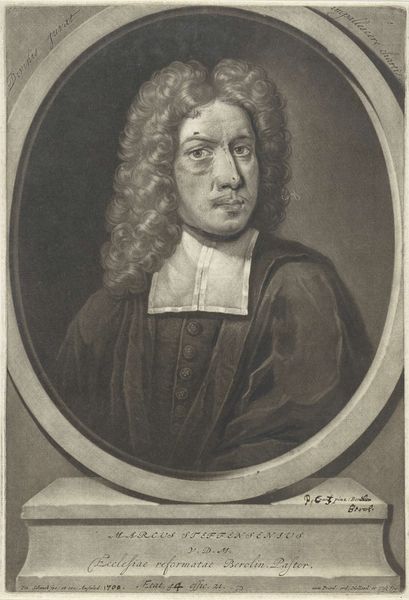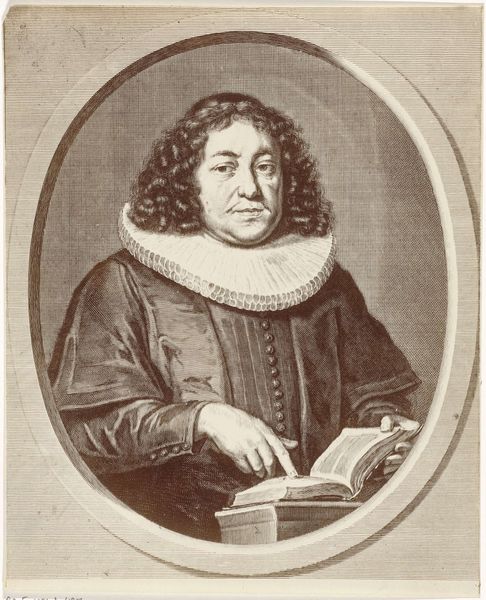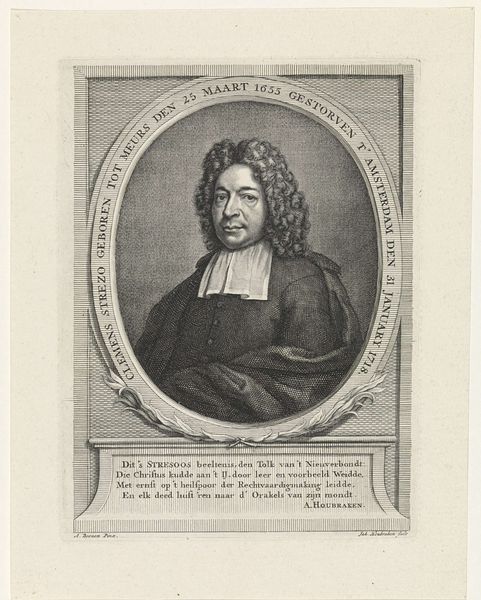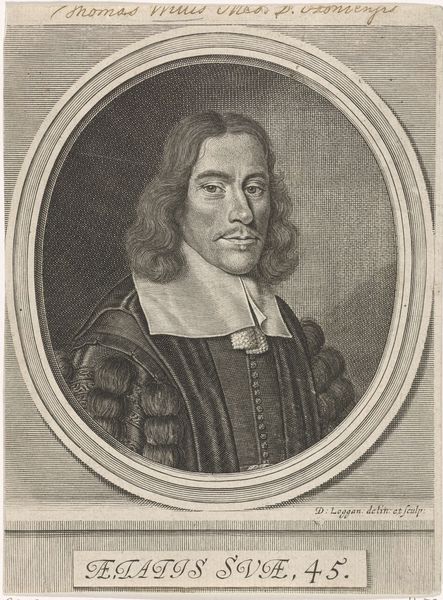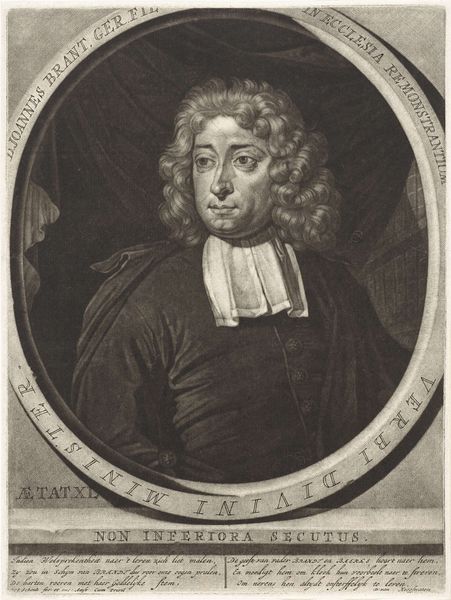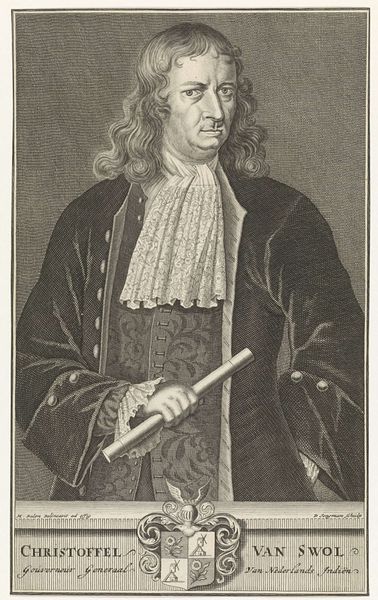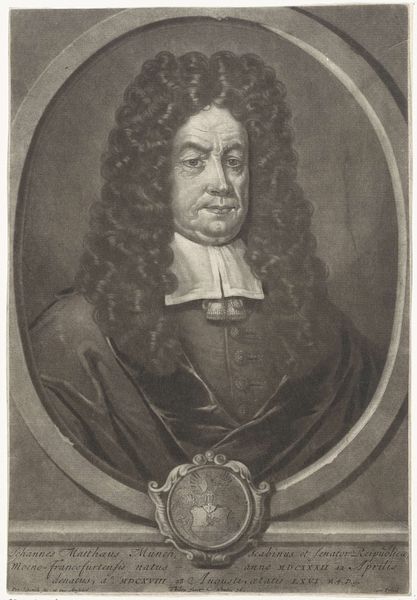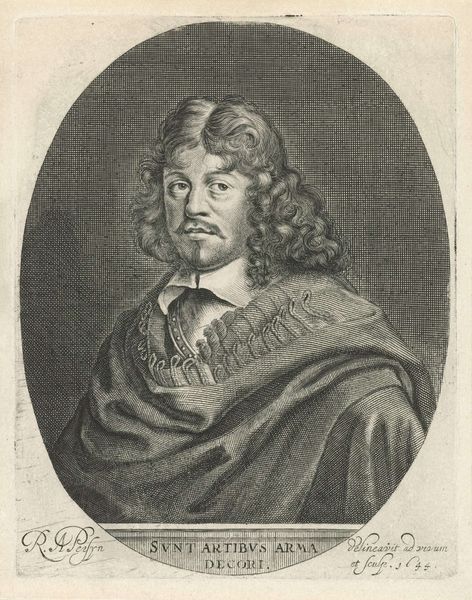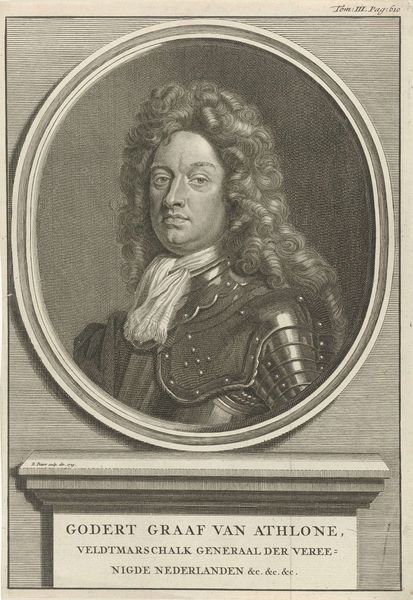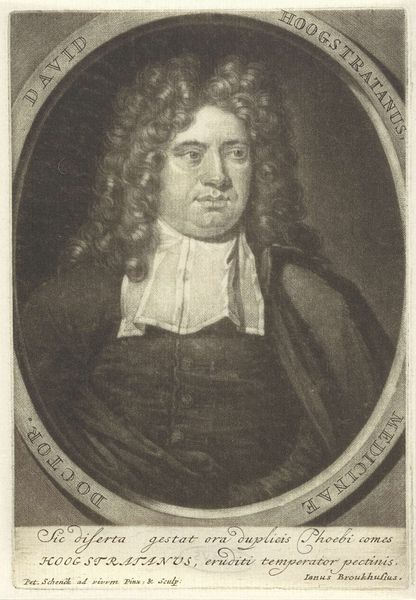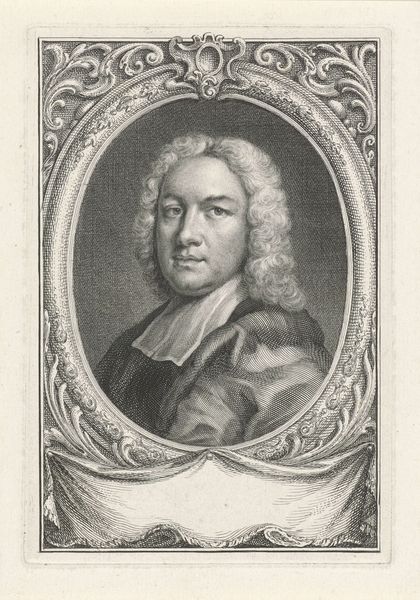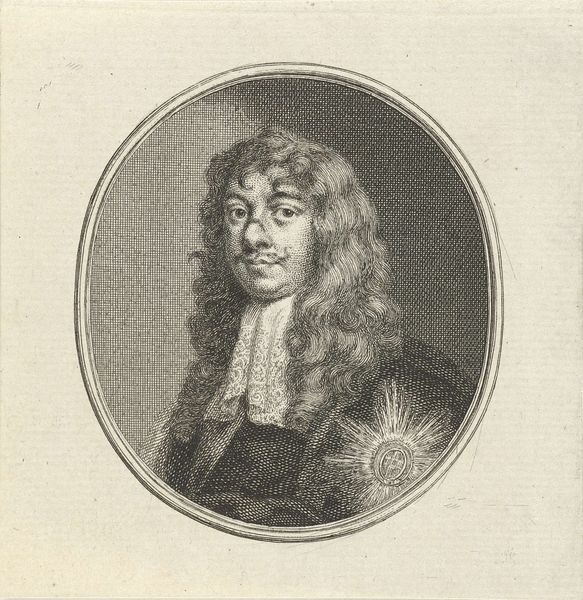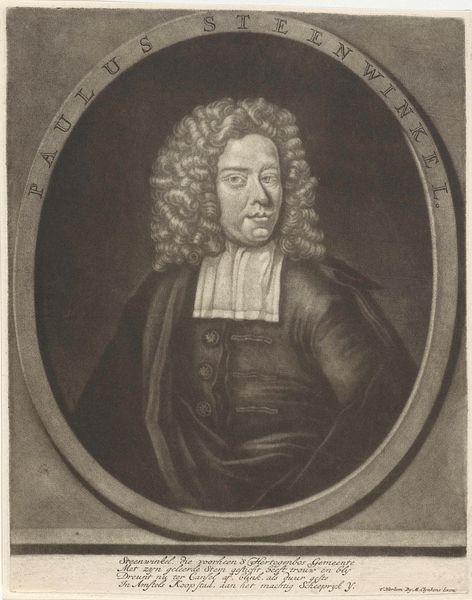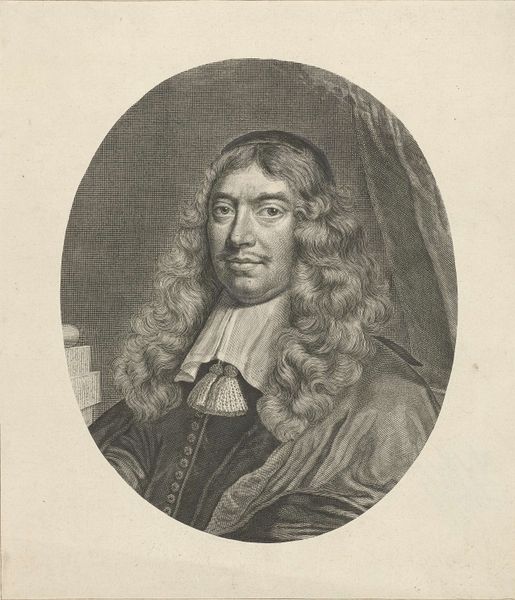
print, engraving
#
portrait
#
baroque
# print
#
graphite
#
engraving
Dimensions: height 200 mm, width 163 mm
Copyright: Rijks Museum: Open Domain
This is Johann Friedrich Leonard’s portrait of Gabriel Schütz, dating from around the 17th century, made using engraving. Engraving is a printmaking technique that depends on the application of intense pressure to impress an image on paper. This particular example would have required Leonard to painstakingly carve lines into a metal plate, probably copper, using a tool called a burin. The density of the marks creates the illusion of tone, modelling Schütz’s face and clothes. Notice the fine detail around the face and hair – that would have taken a lot of effort, and a mastery of the medium. Engravings like this were essentially a form of mass production, creating multiples of an original image. This made portraiture available to a broader public, connecting art to the world of commerce and consumption. The image speaks to the labour and the economic forces that shaped it. Next time you look at a print, think about the labour involved, and how materials and making are essential to understanding its meaning.
Comments
No comments
Be the first to comment and join the conversation on the ultimate creative platform.
